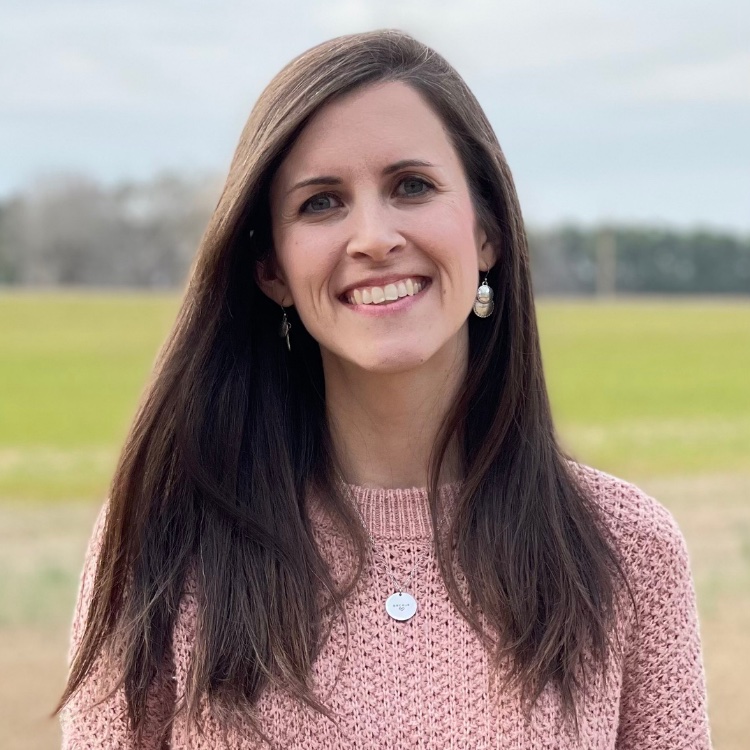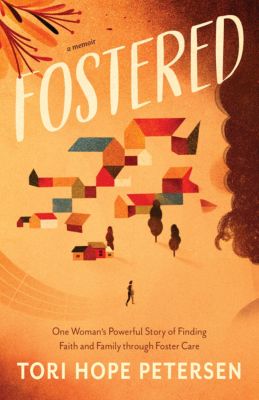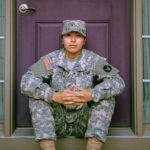
God has uniquely equipped, called, and commissioned the church to serve families and children through adoption and foster care.
By Mary Holloman
“I will go down into the pit, if you will hold the ropes.”
Before leaving for India, missionary William Carey famously spoke these words to his friend and pastor, Andrew Fuller. Fuller spent the next several decades of his life advocating for Carey and other missionaries like him by raising awareness and funds and casting a vision for meeting the world’s spiritual needs.
In Greensboro, North Carolina, the legacy of “rope holding” lives on through Mercy Hill Church. The vision? To meet the needs of vulnerable children through adoption and foster care.
In 2020, lead pastor Andrew Hopper began a sermon series titled “Chosen.” Through this series, he cast a vision and goal of having 200 adoptive and foster care families within the church by 2025.
“The church of Jesus Christ should be on the front lines of building families through adoption and restoring families through foster care,” Hopper says. “If we have a culture of people who say, ‘I’m going down in the pit,’ or ‘I’ll hold the rope for you,’ we’ll see God do incredible things.”
As of the summer of 2023, Mercy Hill had more than 140 adoptive or foster families. And many more families were in the process of getting their licenses to foster.
A culture of rope holding
According to a recent Lifeway Research study, church members across the U.S. are split on whether they’ve seen their churches provide active support for adoption and foster care. Compared to a similar study from 2017, fewer churchgoers are seeing their peers within the church actively engaged in adoption or foster care.
Reports also show that the number of families adopting and fostering in the U.S. has declined over the past five years.
But the culture at Mercy Hill Church seems to be telling a different story. What started as a sermon series at Mercy Hill has grown into the Chosen Ministry, which provides a network of resources and support for adoptive and foster care families, as well as unique service opportunities for “rope holders”—the name Mercy Hill has given to volunteers who commit to supporting families actively adopting and fostering.
“When families considering adoption or foster care feel support from their church, they are more confident moving forward.” — Meredith Weber Click To Tweet“Our Rope Holders check in with families, bring meals, help with yard work, provide transportation, and so much more,” says Meredith Weber, Mercy Hill’s Adoption and Foster Care Coordinator. “When families considering adoption or foster care feel support from their church, they are more confident moving forward.”
Weber believes Mercy Hill’s philosophy of “no more spectators” (the concept of moving every believer from the sidelines to the frontlines) is what has fostered such growth in the Chosen Ministry.
“Not everyone is called to adopt or foster, and that’s okay,” Weber says. “But we can all lighten the load in some way.”
A culture of serving the vulnerable
Mercy Hill’s vision extends beyond its walls. They’ve built healthy relationships with the county’s Department of Social Services (DSS) and have partnered with Lifeline Children’s Services. In 2023, Mercy Hill became the first church in North Carolina to offer “Families Count,” a DSS-approved class from Lifeline designed for parents who are seeking reunification or who are at risk of being separated from their children.
“We have the opportunity to minister to these families beyond completing a class requirement,” says Weber. “We also provide dinner, free onsite childcare, and a meal to go. But most importantly, this curriculum weaves in the good news of the gospel. We’re building relationships with families who otherwise may never walk through our doors.”
Their first group of parents graduated from the class in August 2023.
“Not everyone is called to adopt or foster, and that’s okay. But we can all lighten the load in some way.” — Meredith Weber Click To Tweet5 ways to get started at your church
Weber has a challenge for believers who would like to see their churches more involved: “If you recognize a need within your church, you just might be the one called to meet it.”
But what does it look like to start creating a culture of caring for the vulnerable?
Here are five ways to get started:
1. Initiate a conversation
Set up a meeting with your pastor. Ask how you can be a part of getting your church more involved and brainstorm what that would look like.
2. Identify other believers who have experience with adoption or foster care
Hold an interest meeting to identify other like-minded believers or families who have already adopted or fostered. Listen, learn, and take notes.
3. Find one adoptive or foster care family and reach out
Introduce yourself. Ask if you can drop off dinner. Offer to babysit. Pray for them and their children by name. Ask for specific ways you can help and follow through.
4. Reach out to your Department of Social Services
“Most DSS are short-staffed and there is a lot of turnover,” says Carmen Menser, a foster mom and volunteer at Mercy Hill Church. “One way to make a difference in the lives of these workers is to simply show up—and show up with food. Buy them lunch, send snacks, offer to throw them an ice cream party, just show them you care.”
Menser suggests finding out what they’re already doing and asking how the church can get involved. She also encourages churches to have a single point of contact so the church doesn’t overwhelm the department with many well-intentioned calls at the same time. “[Taking these steps] builds a bridge to a better relationship and often builds a bridge to Jesus, and ultimately that is what it’s all about.”
5. Use resources that already exist
Organizations like Lifeline Children’s Services offer a wide variety of resources to churches, including training. Erica Spivey, the North Carolina state director at Lifeline, says they want to come alongside churches to help them proclaim the gospel and care for vulnerable children.
“You can start preventative ministries, like Families Count, at your church to help at-risk families put protective factors in place so that foster care doesn’t become a part of a child’s story,” Spivey says. “You can even be an advocate for a child aging out of the foster care system. Examples can include serving as Guardian Ad Litem or becoming a trained advocate through programs like Heritage Builders.”
Lifeline Children’s Services and organizations like it love partnering with churches. Explore the resources in and around your area, reach out, and start the conversation.
Not charity, but warfare
In his book Adopted for Life, Russell Moore argues that the church’s responsibility to protect and care for children is a direct expression of the gospel message. He says, “The protection of children isn’t charity. It isn’t part of a political program fitting somewhere between tax cuts and gun rights or between carbon emission caps and a national service corps. It’s spiritual warfare.”
“Not every believer’s role in adoption and foster care will look the same, but that’s what makes the body of Christ beautiful.” — @mtholloman Click To TweetFor believers, spiritual adoption is our story. We were orphans, but through Jesus Christ’s perfect life, death, and resurrection, He gives us the right to become children of God (John 1:12-13; Romans 8:14-17).
God has uniquely equipped, called, and commissioned the church to serve families and children through adoption and foster care. Not every believer’s role will look the same, but that’s what makes the body of Christ beautiful.
Whether you’re going “down into the pit” or “holding the rope,” there are many ways for you to lighten the load.
And there’s plenty of rope for everyone.
For permission to republish this article, contact Marissa Postell Sullivan.

Mary Holloman
Mary writes for a variety of publications, some of her favorite topics being parenthood, pregnancy, and the value of life. She has contributed to numerous books, and her debut children’s picture book, The Anxious Lily (End Game Press), released in early 2023. She and her husband have three beautiful children.
For more information about Lifeline Children’s Services in NC, please email Erica Spivey, State Director, at [email protected].
For more information on the Chosen Ministry at Mercy Hill Church, contact Adoption & Foster Care Coordinator Meredith Weber at [email protected].












